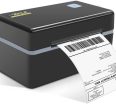What is amazon buy box
Amazon is a massive $1 trillion company, with a market cap at one point even surpassing $1.7 trillion in 2020.
In 2020, Amazon generated $386 billion in revenue and earned $21.33 billion net income.
Amazon is the fourth tech company to reach a $1 trillion market cap (the others are Microsoft, Apple, and Amazon).
Amazon is the most valuable brand in the world with a brand value of about US$220 billion.
The company also has the largest e-commerce market share in the United States at 48%.
Amazon employs more than 800,000 people worldwide and was named one of the top 100 best places to work by LinkedIn in 2019.
What is Amazon Buy Box
It has a tremendous impact on an FBA seller’s sales and revenue. In fact, over 80% of Amazon’s sales are from the buy box. That means that if you want to maximize your visibility and sales on Amazon, you want to win this coveted spot.
Amazon’s Buy Box formula ensures that only trusted, reliable companies, sellers win the Buy Box. As a seller, that’s an immense perk. It allows your product to be seen by more buyers and even promotes your products for you.
However, if you don’t have a great reputation or don’t optimize your products for visibility in Amazon’s search engine (A9), then you won’t ever make it into the buy box.
As Amazon continues to grow its ecommerce platform by adding new products and services like Prime Day , their buy box is becoming more important.

How to win amazon buy box
It’s also important to note that only one seller can win amazon Buy Box for any given product at a time. So if there’s more than one merchant selling an item, Amazon will decide who gets to offer it in this prime location
Amazon Seller Requirements:
To win a Buy Box, you need to be an approved Professional Seller and meet certain performance thresholds. You do not need to be a Pro Seller to sell on Amazon, but to win the Buy Box you must become approved through their Professional Selling Plan.
Performance Metrics:
Amazon determines who’s a trusted seller by reviewing these factors:
– Sales velocity: Your sales over time and how quickly your inventory moves from Amazon warehouses (this can vary by category)
– Product availability: The likelihood of having your product in stock
















